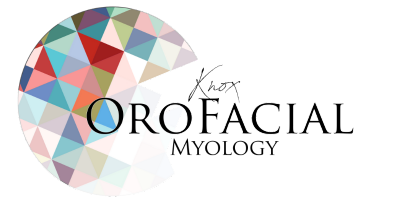Orofacial Myofunctional Disorders
An OMD (Orofacial Myofunctional Disorder) is a disorder of the Orofacial muscle complex which includes the mouth, tongue, lips, and facial musculature (the system or arrangement of muscles).
OMDs can occur as a result of thumb or finger sucking habits, a habitually open mouth posture, or a forward tongue position often referred to as ‘tongue thrust.”
Over time the presence of an OMD can frequently result in dental malocclusion (malocclusion means the teeth are not aligned properly.) such as an open bite, or cause adverse changes affecting facial development. An OMD can undermine the stability of orthodontic correction, resulting in relapse. It can result in strain on other dentition, causing chewing difficulties, which may affect digestion. Research has shown a high incidence of speech problems in individuals with OMD.
What is Myofunctional Therapy?
A myofunctional therapist can help identify, prevent, and treat disorders of muscle function of the face and mouth.
People with myofunctional habits can identify many symptoms, but are often unable to tie it all together.
A Myofunctional Therapist will help identify the concerns and educate the patient on why treatment is necessary. The symptoms, or concerns, of the patient include but are not limited to the following:
- Mouth Breathing
- Orthodontic Relapse
- Chronic Tension
Mood Disorders
- Jaw Pain
- Toxic Oral Habits
Tongue Thrust
Snoring
- Chronic Headaches
- Grinding
- Swallowing Difficulty
Poor Posture
- Sleep Apnea
Tongue-Tie
Speech Problems
Digestive Issues
Goals of the Program
Our program is appropriate for children, teens and adults. Program goals are individualized and are meant to create new healthy oral habits. The benefit of healthy habits can include Nasal Breathing, Lip Seal, Correct Tongue posture, Correct Swallowing pattern.
A variety of exercises are assigned. Exercises focus on resting tongue posture, lip strength and swallowing. A commitment to daily consistent exercise is required to obtain success in our program. The exercises must be carried out until permanent habits are corrected and proper muscle patterns take place.
This program is comprehensive and covers a variety of oral problems. This program helps reverse damaging habits, such as tongue thrust. This program can last from six months to a year. These goals will help the structures in the mouth stay in balance and habitualizing the learned behaviors is most important for long term success.

